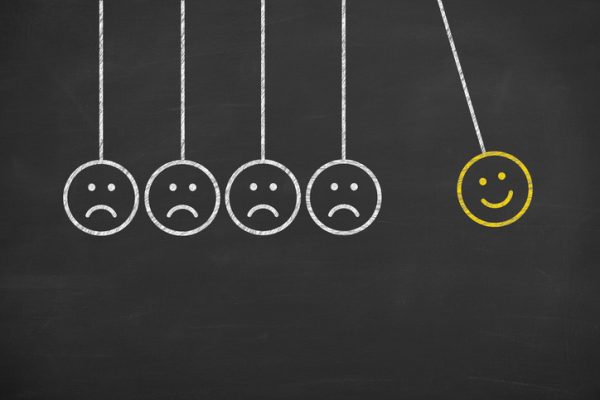
Nearly one in five Americans suffer from mental illness each year, according to data from the Substance Abuse and Mental Health Services Administration.
More than half that number don’t get the care necessary to treat their condition. There are many factors that have driven this trend including cultural stigma, but one major reason is that there simply aren’t enough mental health professionals to meet the need.

The Power of One: Redefining Healthcare with an AI-Driven Unified Platform
In a landscape where complexity has long been the norm, the power of one lies not just in unification, but in intelligence and automation.
Increasingly, patients are turning to digital health tools for help, kick-starting a new industry. These emerging digital therapeutics and how they fit into the larger mental health ecosystem was the subject of an entrepreneur panel at the Manova Summit in Minneapolis, Minnesota.
The program featured Dale Cook, CEO and co-founder of online mental health program Learn To Live, Aneela Kumar, co-founder and president of habit and behavior change company HabitAware and Grady Hannah, the CEO of NightWare, which is targeting the traumatic nightmares of those with PTSD.
Eden Prairie, Minnesota-based Learn To Live was founded in 2012 and is a digital therapeutics company that uses Cognitive Behavioral Therapy (CBT) to help users deal with mental health conditions like depression, anxiety, stress and insomnia.
Originally targeted at the direct-to-consumer market, the company has pivoted its business model to work on the employer and health plan space, signing up customers like Blue Cross and Blue Shield of Minnesota and the University of Minnesota.
Instead of the brash language of disruption and obsolescence generally promoted by tech entrepreneurs looking to revamp an industry, Live to Learn CEO Dale Cook said his company’s solution is meant to work with with face-to-face therapy and other more conventional forms of mental health treatment.
“The complementary nature of what we’re trying to do here speaks to a larger point of being part of an ecosystem,” Cook said. “We can be an appropriate first line intervention in some cases, which helps (professionals) to meet the high demand.”
He added that in some cases the company’s online programs equip patients with the tools and activities they need to better succeed in traditional therapy and counseling.
It’s a sentiment echoed by NightWare CEO Grady Hannah. The Minneapolis-based startup has developed a smartwatch application that monitors heart rate and movement during sleep and intervenes with vibration when it senses a high-stress or nightmare state.
The company developed the technology to work within the clinical pathway and treatment options already pursued by mental health professionals.
“We want to focus very specifically focus on the mental health disease state of nightmare disorder and treat that well and work within the context of how psychiatrists are prescribing and how people are looking at this from a clinical perspective,” Hannah said. “It’s about utilizing digital technology to augment what’s already in place.”
Hannah pointed to the fact that mental health is largely a phenomenological exercise, where clinicians observe a person’s behavior and ask them about their internal dialogue leading to that behavior, and said that digital therapeutics broadens the pathways of providing and receiving mental health care.
One example is Aneela Kumar and her company HabitAware, which is focused on changing compulsive disorders like hair pulling, skin picking and nail biting.
The Minneapolis-based company sells a wearable device called Keen, which analyzes movement, alerting the user of compulsive behavior and giving them ability to retrain their brain.
“It’s not about taking the customer away from the treatment specialist, it’s about embracing technology so they can do their job better,” Kumar said.
“That power of awareness that we’re creating is now enabling someone to use the tools that they’re taught by their treatment professionals. You can’t change what you don’t know is happening.”
Photo: phototechno, Getty Images








